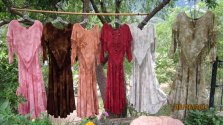Seen at mid-century, the place of Joseph Avenue and Kelly Street was once a major hub of Seventh Ward in northeast Rochester.
Home to a range of immigrant groups when you look at the nineteenth and twentieth hundreds of years, the ward’s major thoroughfares like Joseph Avenue showcased multiple businesses catering towards the diverse local population.
Food markets, bakeries, pharmacies and clothing shops had been on the list of organizations that lined the busy boulevard.
Butchers, taverns and eateries also took root in your community. Sausage producers C. Wilhelm and Josephine Zweigle put up their very first store in the southeast place of Kelly Street and Joseph Avenue-then labeled as St. Joseph Street-in 1880. The business stayed at this site since the intersection’s northeast part housed some saloons, a restaurant, and in the end the music site pictured right here.
Opened in 1943, the Cotton Club was named after the popular Harlem institution that drew jazz luminaries such as for example Louis Armstrong, amount Basie and Cab Calloway. Rochester’s club lured a unique share of famous functions. In accordance with previous Seventh Ward denizen Chuck Mangione, it “was really the focus of Little Harlem within Rochester.”
The diminutive moniker denoted the neighborhood’s strong African American presence, resulting from the increase of southern migrants in 1940s and 1950s.
Though perhaps not a Southerner, Eddie Israel, an erstwhile drummer for Dizzy Gillespie and Ella Fitzgerald, moved to Rochester in 1954 and promptly joined up with the Cotton Club’s home musical organization.
Sitting behind the skins seven evenings per week, Israel backed jazz and blues greats like Bullmoose Jackson, Eddie “Cleanhead” Vinson and Roland Kirk. “The brands would come here, ” he recalled in 2005.
Though a well known spot, the club’s future became unsure in the 1950s as soon as the City of Rochester evaluated the venue’s surrounding neighborhood for a potential metropolitan restoration effort.
The club’s fate ended up being sealed in 1958 if the City approved a suggestion to construct a housing complex in the Kelly block of Joseph Avenue.
Referred to as “a type of latter-day landmark” in a 1960 Times-Union article, the Cotton Club’s good deal ended up being among 442 parcels of land slated for demolition included in the wider Baden Ormond clearance task.
City planners hoped that Chatham Gardens, the housing complex that unsealed as of this intersection in August 1962, would both provide houses to some of this Seventh Ward inhabitants displaced by this approval as well as foster an integrated residential neighborhood.
As Vice-Mayor Joseph Farbo proclaimed at Chatham Gardens’ ground-breaking in 1961, “i really hope that a cross-section of individuals who form the city of Rochester can live here in peace and glee.”
The early several years of the complex found Farbo’s desire fulfilled. In 1963, regional newsprints stated that Chatham Gardens housed a racially balanced tenant base. Denizens ranged from students and assembly line workers to attorneys and engineers.
Although Chatham Gardens not boasts exactly the same interracial ratio it performed upon its inception, it consistently supply affordable housing in a conveniently found, green residential setting.

|
Men's billionaire boys club XL White Apparel (billionaire boys club t shirt)
|

|
Pro Club Men's Heavy Weight Cotton T-Shirt (Multiple Colors Available) (Medium, White) Apparel ()
|

|
Nike Mens Club Pull Over Hoodie Obsidian Navy Blue/White 611457-473 Size Large Apparel (Nike)
|

|
Charter Club Womens Black Classic Waist Smoothing Slim Ankle Pants 14S Apparel (Charter Club)
|

|
Club Room Men's Cotton Blue Basic Short Sleeve T-Shirt Medium [Apparel] Apparel ()
|







